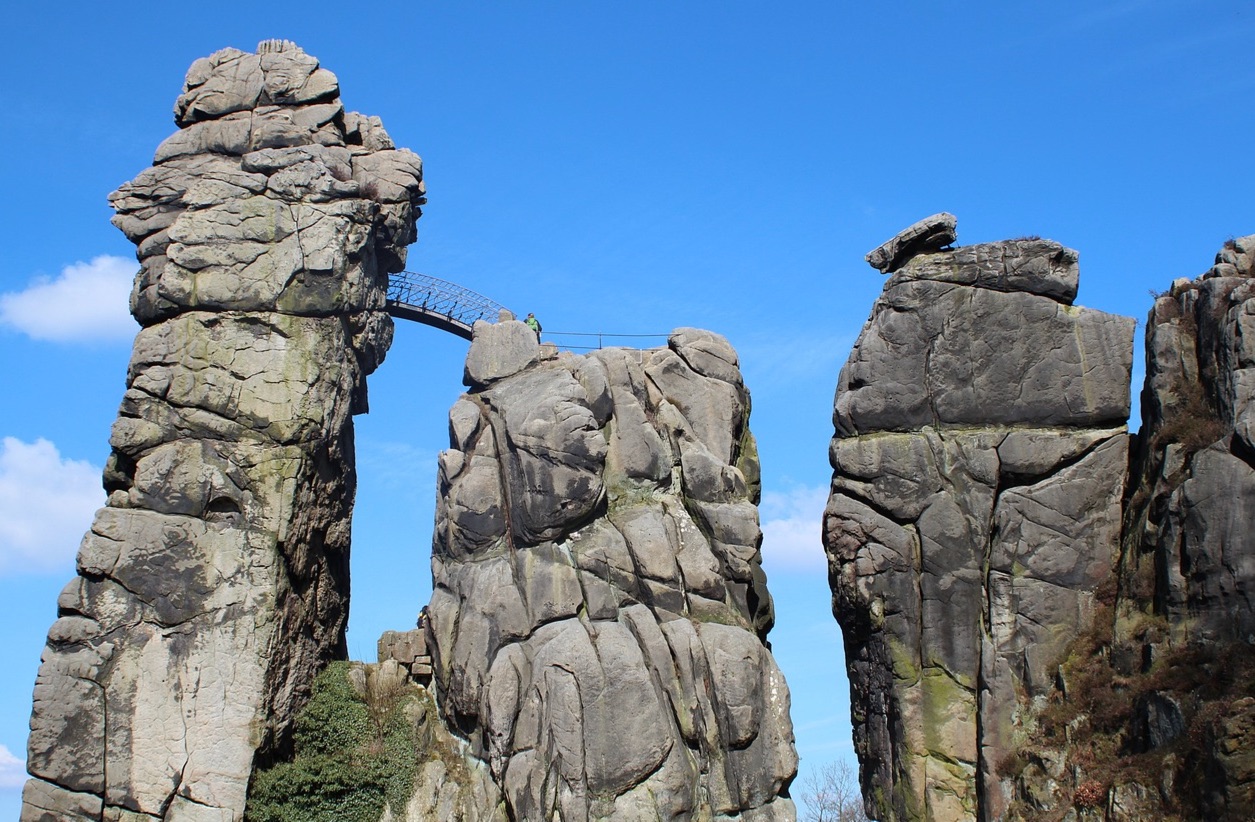During July, we thought it was possible that a new human centered geologic epoch called the Anthropocene might have begun in 1950 or before. But now, through a 12-4 Anthropocene Working Group vote, scientists concluded it is not here. Instead, having begun 11,700 years ago, the Holocene continues. The earth’s economic growth could determine when it ends.
Our Geologic Time Scale
The Scale
On a geologic time scale, in descending time-length order, an eon is longest, then we have eras and periods. More brief, epochs and ages come next. And then we have events. But really, it’s the rocks that count. The fossil characteristics that differentiate rock strata can determine where we are on our geologic time scale.
In the lower right corner, I’ve added a black arrow to an Axios geologic graphic:
The Human Impact
At this moment, we are leaving assorted isotopes that are remnants of nuclear weapons, carbon emissions, oxygen depleted oceans, and rocks weathered by violent storms. It is also possible that our rock strata will contain specks of plastic. Together, all can tell the story of our economic growth, globalization, and urbanization.
But still, we might not yet be sufficiently differentiated from the Holocene. Or, as some suggest, we could just be a blip called an event that disrupted the earth but did not endure as long as an epoch.
Our Bottom Line: The Tradeoff
For the scientists that believe in a new epoch, the human economic role creates a unique tradeoff. It takes us back to the end of the 18th century and the Industrial Revolution when human economic activity accelerated. As a result, millions of individuals moved from inadequate food and shelter to a more substantial standard of living. Although probably not the beginning of the Anthropocene, it was an increasingly affluent economic environment with heightened carbon emissions from coal-powered machines. So yes, while those machines multiplied output and brought comfort, they also jumpstarted the forces that generated climate change and polluted air.
Below, you can see the vastly diminished proportion of people living in extreme poverty:

But elevated well-being had a cost:

Even as an “event,” our human-centered presence can be characterized by the tradeoff between economic growth and environmental degradation.
My sources and more: Building from this July 2023 econlife, we got our update from the NY Times and the BBC. In addition, The Atlantic (convincingly) explained while we are an “event” rather than an “epoch.” And then, as always, graphics from Our World in Data came in handy. Please note that several of today’s sentences are from a past econlife post.







